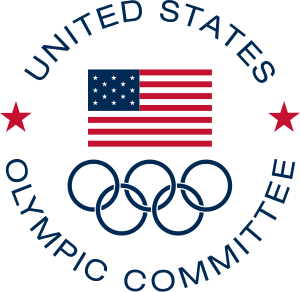Summer Olympics May Come to CT if Boston Bid for 2024 Succeeds
/Boston is one of four cities being considered to be the United States entry in the international competition to host the 2024 Olympic Games. If Boston's bid were to become a reality, at least one Olympics observer is suggesting that Connecticut may have an Olympic supporting role to play.
Boston, San Francisco, Washington D.C. and Los Angeles have been selected to develop bids to be considered by the U.S. Olympic Committee, which would decide which city - if any - to support and present to the International Olympic Committee (IOC), which will decide in 2017 on the host city for the 2024 Olympics.
Rosanna Garcia, associate professor of marketing in the D’Amore-McKim School of Business at Northeastern University in Boston, who has attended the past eight Summer Olympics, sees the city turning to Connecticut and Rhode Island to host some events.
“With more than 300 events that typically occur at the Olympics, many cities around Massachusetts, and even Rhode Island and Connecticut, will need to partner with the International Olympic Committee to host these events,” Garcia points out.
 “Many preliminary competition events would need to take place outside of the main Olympic Park areas so events may occur as far away as Connecticut. This also is an opportunity for more people to get involved with the Olympic Spirit,” Garcia adds.
“Many preliminary competition events would need to take place outside of the main Olympic Park areas so events may occur as far away as Connecticut. This also is an opportunity for more people to get involved with the Olympic Spirit,” Garcia adds.
The Boston Globe has reported that the U.S. Olympic Committee is expected to decide early next year whether to enter a U.S. city in the international competition to host the 2024 Olympics. That would be just after the IOC acts on recent recommendations to reform its selection process, which would take effect with the 2024 Summer Games host selection. The IOC meets next month to consider the series of recommendations.
Members of the U.S. Olympic Committee were in Boston last week, meeting with representatives of the Boston bid and area colleges which would participate, potentially providing sports venues, dorms, and other support services. Last month, a promotional video advocating a Boston bid was released, and a website was launched. With an eye toward innovation and efficiency, the video highlights Boston’s bid “to create a sustainable model for hosting the Olympic and Paralympic Games that can become the blueprint for future host cities.”
The Connecticut Convention & Sports Bureau, the state’s official meetings and sports event sales and marketing organization, "supports Boston’s bid for the 2024 Olympics," said Interim President H. Scott Phelps. "Regardless of whether or not Boston wins the Olympics, the City’s bid has helped to elevate the Boston and other New England brands to sports event planners from all over the world." Officials noted that if the Olympic Games decide to come to Boston, "it could be great for tourism in nearby Connecticut as well, as spectators and competitors would be encouraged to come visit our State’s attractions," adding that "there might be opportunities for our state to host pre-Olympic competitions and ... athletes."

The Globe noted that if the International Olympic Committee, meeting in Switzerland in December, decides that its preference is for compact venues, as is expected, Boston is seen as a strong candidate and could gain an advantage over Los Angeles, San Francisco, and Washington, whose plans offer less intimate settings, according to the Globe. Supporters of the San Francisco bid have noted that the chairman of the U.S. Olympic Committee, Larry Probst, lives in nearby Burlingame, CA. The San Francisco effort is being led by Larry Baer, the chief executive officer of baseball's World Series champion Giants, according to published reports.
It is the first time that Boston has prepared a bid to host the Games, and it is being led by an organization called the Boston 2024 Partnership, a nonprofit organization formed to prepare the bid materials. The group is governed by a 36-member executive committee, and has launched a series of subcommittees aimed at master planning, fundraising, outreach, and engagement. Organizers note that no tax dollars have been spent on Boston 2024, and tax dollars will not be used to build venues or pay for the operation of the Games. Public investment will be confined to roadway, transportation and infrastructure improvements, most of which are already planned and are needed with or without the Olympics.
 An Olympic games in Boston would utilize existing sports venues of both professional teams and area colleges, which could reduce potential costs. Infrastructure improvements, such as in transportation, are already on the drawing board, and could accelerate with a Boston bid.
An Olympic games in Boston would utilize existing sports venues of both professional teams and area colleges, which could reduce potential costs. Infrastructure improvements, such as in transportation, are already on the drawing board, and could accelerate with a Boston bid.
The U.S. last hosted a Summer Olympiad in Atlanta in 1996; a Winter Olympics in 2002. St. Louis hosted in 1904 and Los Angeles held the Games in both 1932 and 1984. In recent years, the unsuccessful U.S. bids to the IOC was to host the Summer Games were New York (2012) and Chicago (2016). The 2016 Games will be held in Rio de Janeiro and the 2020 Summer Olympics are scheduled to be held in Tokyo, Japan. Other potential contenders, according to published reports, include Paris, Rome,Doha, Istanbul and either Hamburg or Berlin in Germany.
“Holding the Games in the Boston area would serve as a catalyst for growth in the region,” said John Fish, CEO of Suffolk Construction and driving force in the initiative. “We are also excited for the chance to deliver something that is both powerful and meaningful for the worldwide Olympic and Paralympic movements that will also connect more youth to sport.”




 scles, which made jumps and spins painful. It was during that time that his love of music and interest in skating merged toward ice dance.
scles, which made jumps and spins painful. It was during that time that his love of music and interest in skating merged toward ice dance. two along the way to help meet the relentless expenses of a skating career. She worked the overnight shift, so days could be spent with her son. Because of his skating-centric life, Donohue was home-schooled through his teenage years, and college plans remain on hold for now.
two along the way to help meet the relentless expenses of a skating career. She worked the overnight shift, so days could be spent with her son. Because of his skating-centric life, Donohue was home-schooled through his teenage years, and college plans remain on hold for now.






























